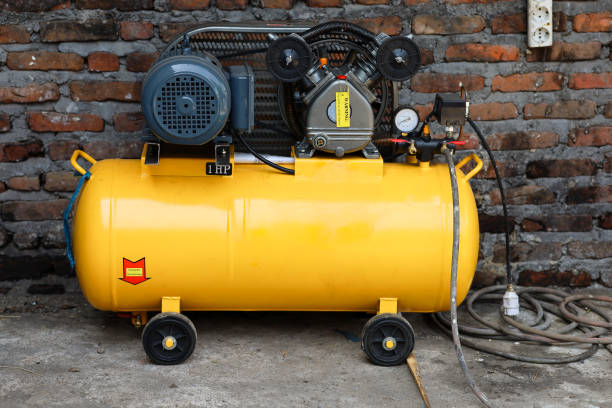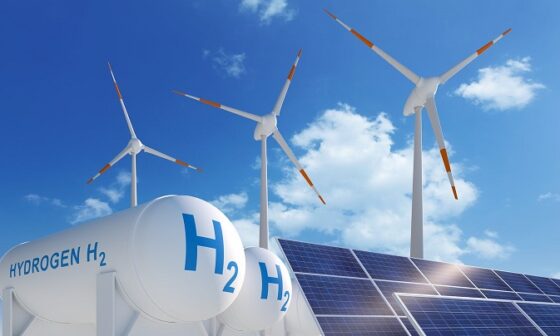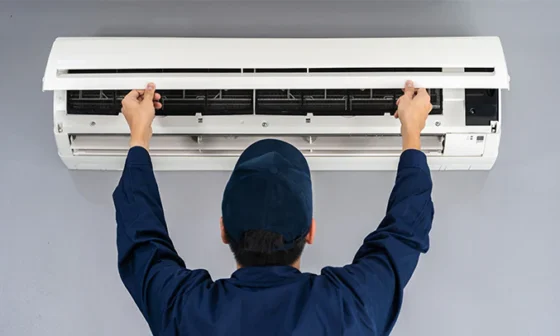
In recent years, the construction industry has faced increasing pressure to embrace sustainable practices and reduce its environmental impact. Central to this effort is the integration of eco-friendly tools and technologies. Among these tools, air compressors play a surprisingly significant role in promoting sustainability within construction projects.
Their versatility, energy efficiency, and ability to enhance waste reduction make them invaluable assets in the pursuit of green construction. By understanding how air compressors contribute to sustainable building practices, construction professionals can make informed decisions that benefit both their projects and the environment.
The Role of Air Compressors in Sustainable Construction
Air compressors have become essential in construction due to their adaptability across numerous applications. From powering pneumatic tools to handling materials and aiding in prefabrication, air compressors streamline operations and significantly reduce energy consumption. Their efficient use of energy, coupled with technological advancements, positions them as a sustainable choice in construction.
Moreover, air compressors have transformed traditional approaches, enabling environmentally responsible practices without compromising performance or productivity. With a focus on reducing resource consumption and minimizing carbon emissions, construction companies can rely on air compressors to meet sustainability goals.
1. Energy Efficiency in Air Compressors
One of the primary reasons air compressors support sustainable construction is their energy efficiency. Traditional fossil fuel-powered equipment often results in high emissions and energy waste.
However, many modern air compressors are designed with energy-saving features such as variable speed drives (VSDs), which automatically adjust the compressor’s output based on demand. By only using the energy needed for the task, these compressors cut down on power usage, leading to reduced greenhouse gas emissions and lower energy costs.
For example, using VSD air compressors enables construction firms to run pneumatic tools without the need for constant, full-throttle operation. This minimizes waste and promotes efficient use of resources. As energy efficiency standards rise, opting for compressors with advanced energy management systems can make a meaningful difference in achieving environmental sustainability on job sites.
2. Reduced Emissions for Greener Operations
Air compressors also contribute to sustainable construction by helping reduce emissions. As regulations on emissions continue to tighten, construction companies are under pressure to find ways to comply while maintaining productivity.
Many newer air compressors use environmentally friendly technologies, such as electric-powered units and oil-free systems. These options emit fewer pollutants than their diesel-powered counterparts, making them a cleaner alternative.
The switch to electric-powered compressors reduces emissions and noise pollution, creating a safer and more sustainable job site. Additionally, oil-free compressors eliminate the risk of hazardous leaks and contamination, which can be particularly beneficial in environmentally sensitive areas. By using air compressors designed with low-emission technology, construction companies can meet strict regulatory requirements and demonstrate a commitment to eco-friendly practices.
3. Waste Reduction and Resource Optimization
Air compressors are instrumental in minimizing waste and optimizing resources, essential components of sustainable construction. In traditional construction processes, a significant amount of material waste occurs due to imprecise cutting and shaping methods.
Air compressors, however, power precision tools that help eliminate excess waste by making accurate cuts and finishes. This level of precision is especially important when working with materials such as metal, concrete, or wood, where mistakes can result in substantial waste.
Moreover, compressed air systems support advanced techniques such as prefabrication, where construction components are manufactured off-site in controlled environments. Prefabrication not only reduces onsite waste but also shortens project timelines, resulting in fewer overall emissions. Through prefabrication and other resource-efficient methods, air compressors help create a more sustainable construction process with minimal waste.
4. Water Conservation with Air-Powered Tools
Many air compressors are used in tools that contribute to water conservation. For instance, pneumatic tools require less water for cooling compared to traditional electric-powered counterparts.
Water is a precious resource, and construction projects that manage water consumption more efficiently are at an advantage in terms of sustainability. By reducing the water requirements of various tools, air compressors help support construction projects that prioritize resource conservation.
The application of air-powered tools in dust suppression systems is another example of water conservation. These systems use compressed air to manage dust without the need for excessive water spray, preserving water resources while ensuring job site cleanliness and safety. With air compressors, construction companies can incorporate sustainable practices that protect the environment and meet industry demands.
5. Supporting Renewable Energy Initiatives
Air compressors also contribute to renewable energy projects by powering tools for assembling solar panels, wind turbines, and other green energy systems. The construction of renewable energy facilities often requires a range of compressed air applications, from material handling to fastening and assembly. Using energy-efficient compressors in these projects helps reduce the carbon footprint of the renewable energy sector itself, creating a positive feedback loop in the pursuit of sustainability.
Furthermore, the durability and versatility of air compressors make them suitable for large-scale infrastructure projects related to renewable energy. By selecting high-quality, durable compressors from a local compressor company, construction professionals can benefit from reliable equipment that supports eco-friendly building practices for years to come.
6. Improving Job Site Safety and Minimizing Noise Pollution
Construction sites are known for their high noise levels, which can negatively impact surrounding communities and ecosystems. Noise pollution has become a growing concern in urban areas, and sustainable construction practices must take this into account. Air compressors, particularly newer models with noise-reduction technology, contribute to quieter operations, minimizing the impact on nearby residents and wildlife.
Furthermore, using air-powered tools enhances job site safety by reducing exposure to vibration, dust, and other physical hazards associated with electric or fuel-powered equipment. Cleaner, quieter job sites contribute to a healthier work environment, improving the well-being of workers while reducing the construction project’s environmental impact.
7. Supporting Circular Economy Practices
Sustainable construction also embraces the concept of the circular economy, where products and materials are reused, refurbished, or recycled to extend their lifecycle. Air compressors support this approach by powering demolition and deconstruction tools that allow materials to be carefully dismantled and repurposed. Instead of disposing of old structures, construction companies can salvage materials for use in future projects, reducing waste and conserving resources.
Many modern air compressors are designed with durability in mind, ensuring a longer operational lifespan and reduced need for replacement. This longevity aligns with circular economy principles, as it reduces the frequency of equipment disposal and replacement. By choosing energy-efficient, long-lasting compressors, construction companies can foster sustainability across the project lifecycle.
8. Encouraging Sustainable Building Certifications
Incorporating sustainable practices into construction projects can help companies achieve certifications such as LEED (Leadership in Energy and Environmental Design) and BREEAM (Building Research Establishment Environmental Assessment Method). These certifications evaluate the environmental performance of buildings, and using air compressors with eco-friendly features can contribute positively to the scoring process.
To qualify for such certifications, companies must demonstrate efforts in areas such as energy efficiency, emissions reduction, waste management, and resource conservation. By using advanced air compressors that support these criteria, construction projects become eligible for prestigious green building certifications, ultimately enhancing their environmental credibility and market appeal.
Conclusion
The journey toward sustainable construction requires a shift in practices, technologies, and tools. Air compressors, with their energy-efficient designs, emission-reducing capabilities, and role in waste minimization, are invaluable in achieving these sustainable goals. Whether it’s through supporting precision cutting, reducing emissions, conserving water, or promoting the circular economy, air compressors have proven their worth as eco-friendly tools in the construction sector.
By collaborating with a local compressor company, construction firms can access high-quality, sustainable air compressor solutions tailored to meet the demands of environmentally responsible building projects.
Embracing these advanced technologies can help companies not only meet regulatory standards but also demonstrate their commitment to sustainability, paving the way for a greener, more responsible construction industry.


